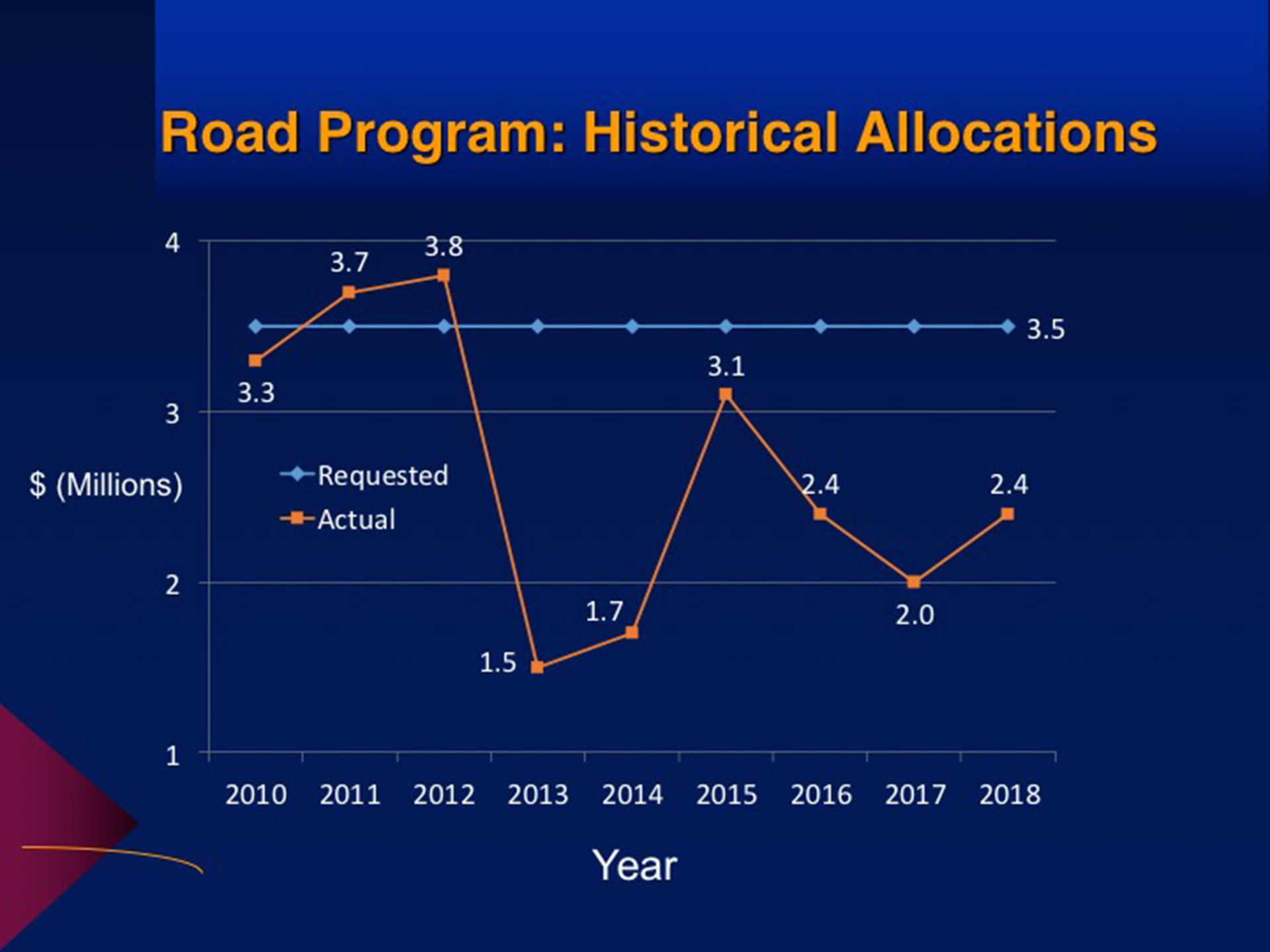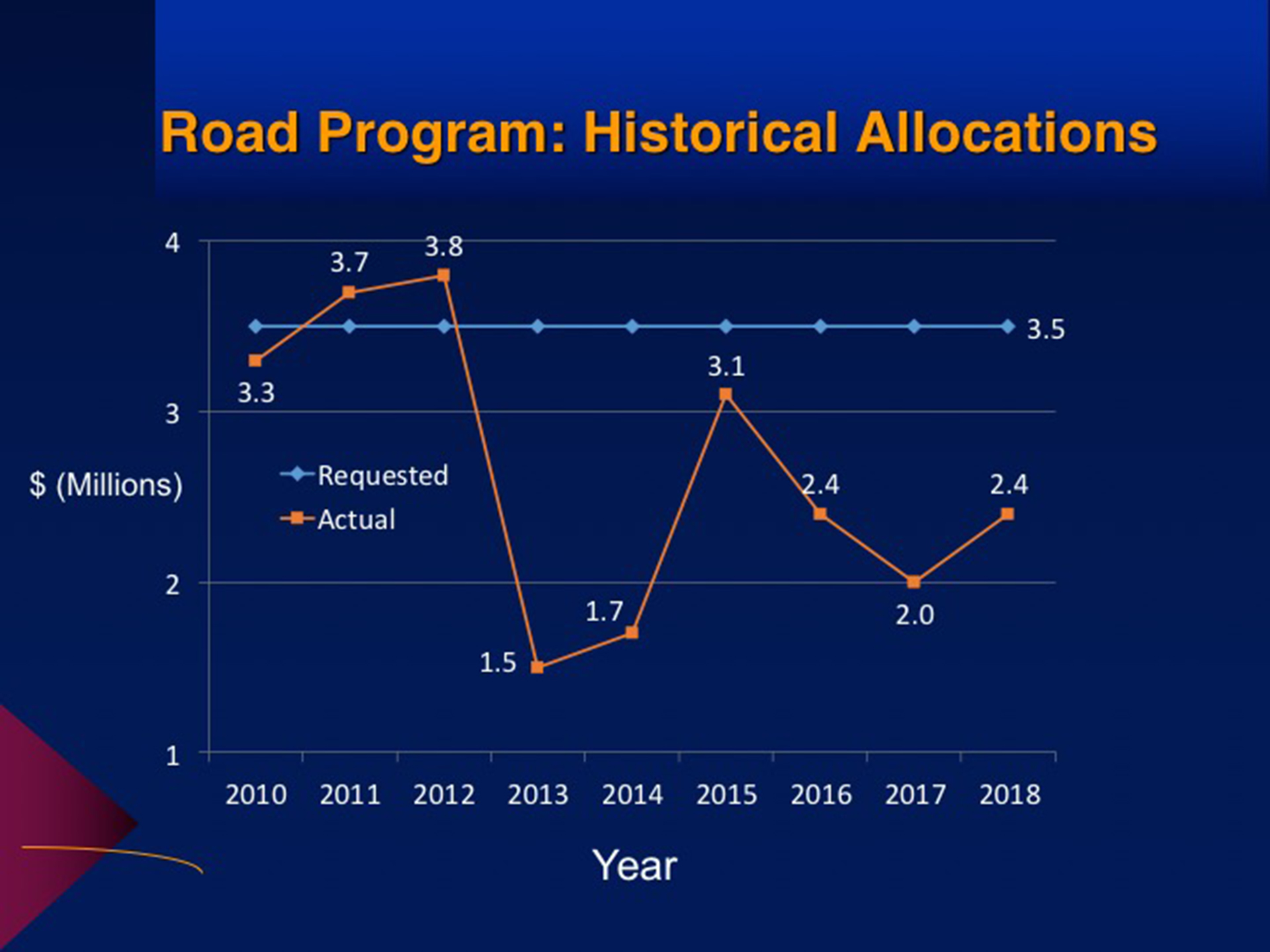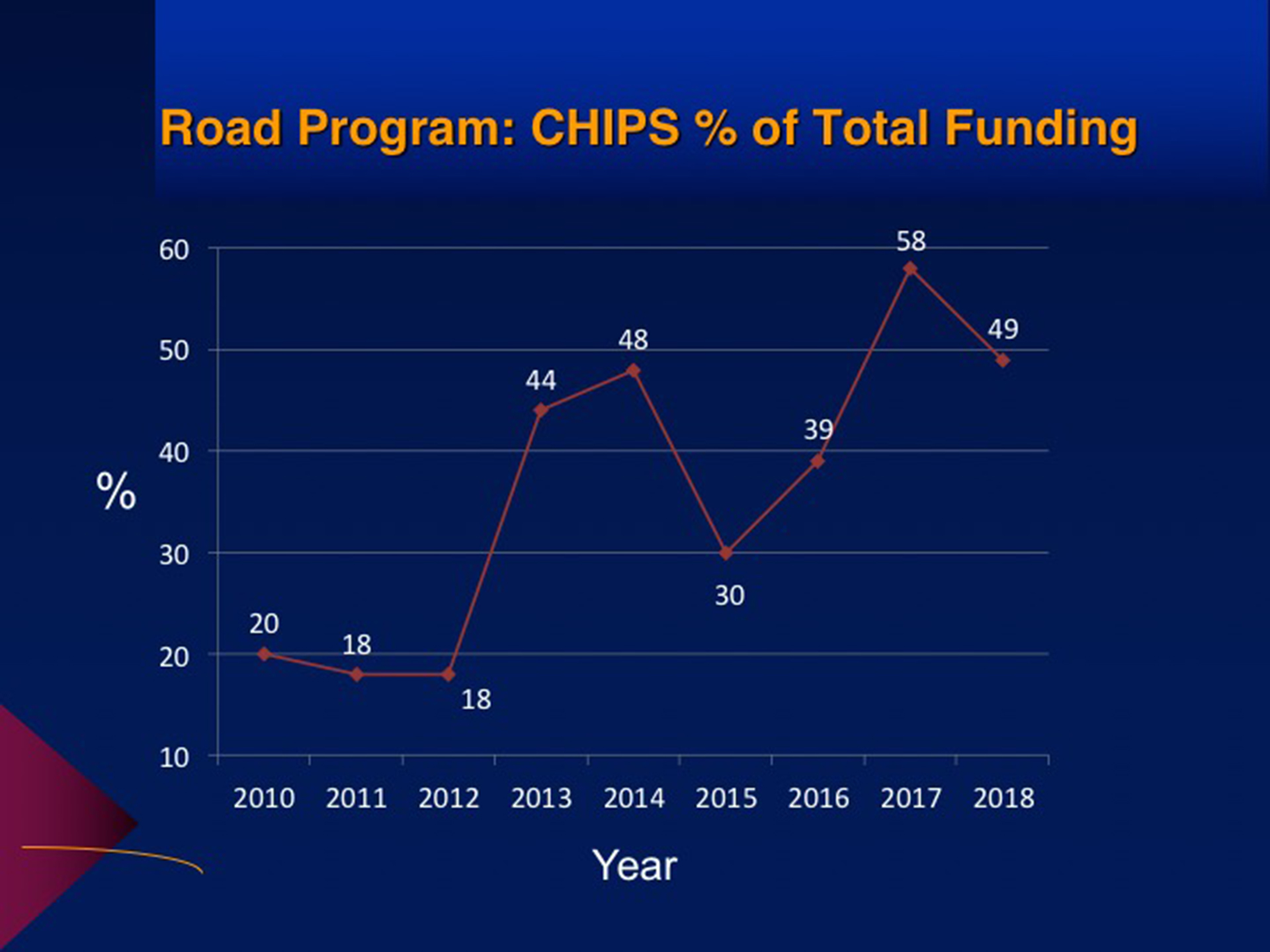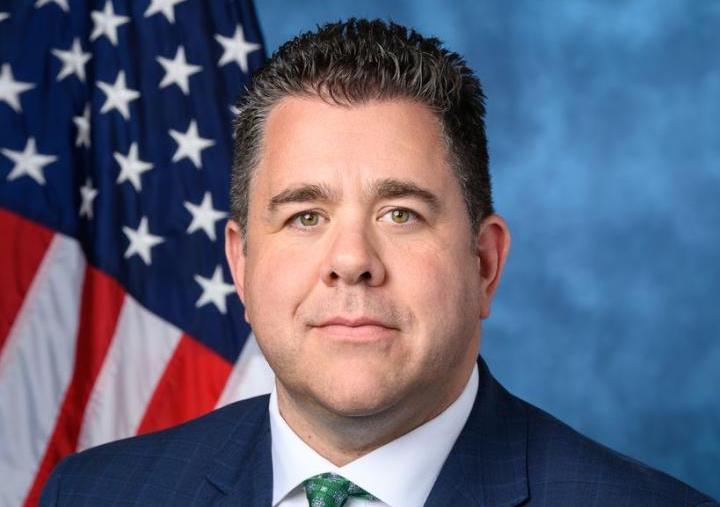Highway Super: ‘We Need More Funds’


Southampton Town Highway Superintendent Alex Gregor remains unhappy with his allotted paving budget, urging the town board to create a long-term strategy to tackle projects more efficiently. Gregor wants his department to be able to repair and resurface roads before having to reach the “reclaiming” process, which is where the department grinds the road, injects it with oil and makes a new road bed before paving on top of it.
“We try to take our pool of money and spend it evenly throughout our six districts,” Gregor said to the board during a work session November 15. “Reclamation is the most intensive process, and because we’re able to tackle less roads each year, we’re finding more and more of these roads are falling into that category. We try to take the money and spend it as efficiently and wisely and expeditiously as possible to get things done, but everyone wants their roads paved.”
Gregor said for the last two years, half of his funding has been dependent on state aid, mainly from the Consolidated Local Street and Highway Improvement Program, from which the town has received roughly $850,000 a year.
Roads that have been resurfaced, or overlaid with asphalt, in 2018 include Halsey, Hildreth, and Church lanes in Bridgehampton; Ponquogue Manor and Wakeman Road in Hampton Bays; Bay Avenue and Jones in East Quogue; and Ring Neck Road in Remsenburg; among about a dozen others. Roads that have reached the reclaiming process that were completed this year include Harrys Lane in Sag Harbor, Narrow Lane South in Water Mill, North Bayview Road in Southampton; and Higbee Road in Hampton Bays.
“We look at roadway that if we don’t do it in a particular year it might slip from resurfacing to reclaiming, so we push that one up higher on our priority list,” said Vincent Gaudiero of Smithtown-based Pavement Services Inc. “This is the last resort — it’s very expensive and time-consuming and weather intensive. Moisture is our biggest enemy, because if they pulverize the road, open it up and then we get a storm and moisture gets in the soil, it could take a week to dry it out before we can get to putting stabilizing agent in.”
Since reclamation turns a potential $136,000-per-mile project into a $240,000 one, this also means the town’s budget results in fewer miles being paved with each reclaiming project it must add. To compare, back in 2012 the paving allocation, including CHIPS funding, was $3,760,000, and the town was able to pave 25 miles of roadway. The following year, as a result of the tax cap reduction, the highway department received $1,490,000 and finished 10 miles. Last year, the town received $2,050,000 and worked on 15 miles of roadway, and this year paved 16 with $2,450,000. The highway department received additional grant money this year to reach that mileage. According to town Comptroller Len Marchese, the 2018 budget includes $3.2 million for paving, which includes the potential $850,000 in CHIPS funding. The town finds out in April exactly how much state aid it will receive.

Since 2010 Gregor, who has been at the helm of the department for nine years, has requested $3.5 million a year to maintain the town’s 450 miles of road. His goal is to complete 25 miles a year. He said he believed a long-term strategy would also be perfectly timed to begin now while asphalt and crude oil prices are low, before they eventually become more expensive again in the future.
The town has a 10-year program introduced in 1999, which concentrated much of its work in Bridgehampton, a district that Gaudiero said at the time was “in serious need of repair.”
“That program, unfortunately, focused a lot on reclamation because many of the roadways were in reconstruction mode at that time,” he said. “If we can get a program started and get on top of some of these roads now, with the future of the program, like what happened after 1999, we can focus on milling and overlay.”
“We’re doing what we can,” Gregor said. “The cold, rain, and traffic beats the heck out of our roads, and this is all of our responsibility. We are asking even for a bond — could ask the public to vote — and try to knock this out instead of doing a few miles at a time. It’s a lot of roads and we need to meet the challenge. I’m asking for your help.”
desiree@indyeastend.com








